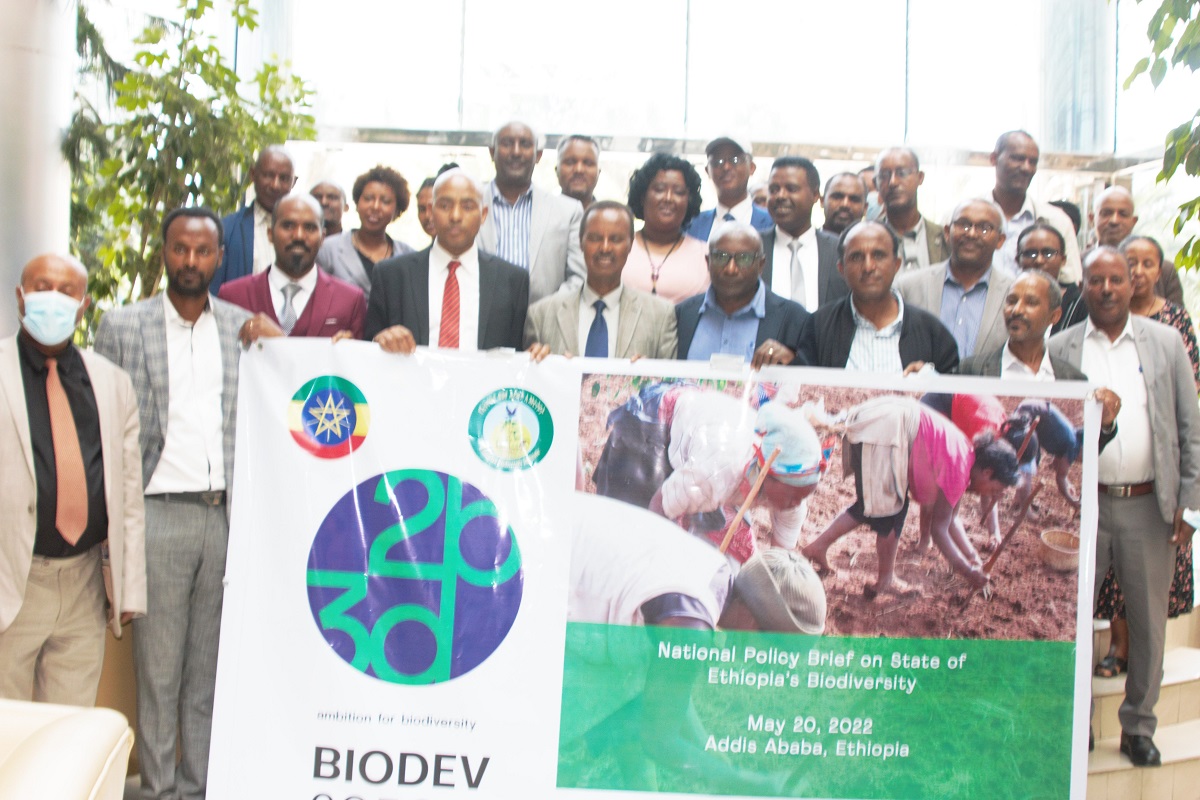Introducing the Regional Councillors IUCN Africa Statutory Region
Members of IUCN attended the World Conservation Congress that was held in Honolulu, Hawaii, 1-10 September 2016. In accordance with the provisions of the IUCN Statutes, the members elected new members of the IUCN Council for the period 2017 – 2020. Four Councillors were elected to represent the membership from the Africa Region.
 Photo: IUCN ESARO
Photo: IUCN ESARO
|
Mamadou Diallo is Senegalese, former parliamentarian and former Mayor. He was elected IUCN Regional Councillor for Africa for a second and final term at the World Conservation Congress of Hawaii. He has the skills, the profile, the experience and the commitment and willingness to represent the interests of IUCN in Africa vice versa. Indeed, a lawyer by training, specializing in International Environmental Law, Education on Environment and Promotion of Ecotourism, Mr. Diallo has done many studies on biodiversity and management of protected areas in Senegal. He is Secretary General of the Senegalese Association of Friends of Nature, an NGO member of IUCN since 1996. Member of the Committee on Education and Communication, Member of the Law Commission of Environment IUCN, he chaired the destinies of the National Committee of Senegal IUCN Sub-Regional Committee of IUCN members in West Africa MCAD and the Regional Committee of IUCN members in Central and West Africa (CREMACO). He regularly attends the IUCN congress for the Amman in Jordan. At Jeju Congress, he was elected IUCN Regional Councillor for Africa for the first time. As such he was a member of the Office of the IUCN Council, member of the Governance Committee and Constitution, member of the Working Group on Private Sector Group member on Motions and Jury member for Medals and Members of honor of IUCN. Mr. DIALLO therefore a very detailed knowledge of IUCN, its components and its operation. He also has a clear understanding of the major challenges we face in climate change, the food crisis, resource depletion and degradation of our fragile ecosystems, in short poverty. In Africa, Mr. Diallo believes that these issues have in common bad governance. After his election, he pledged to strive with all components of IUCN, to continue the exciting work already started, to face the major challenges that beset the world and Africa, as part One of the Program and for the Council, the Secretariat, members and Commissions to work together in perfect synergy. |
 Photo: IUCN ESARO
Photo: IUCN ESARO
|
Hon. Jesca Eriyo is Deputy Secretary General, East African Community (EAC) and IUCN Regional Councillor. Hon. Eriyo brings to this position a formidable record of leadership experience that spans more than a decade, having served in fields ranging from education, business management, and community development to politics. Her time as a politician includes 10 years as a Woman Member of Parliament for Adjumani District in northern Uganda (2001-2006, 2006-2011) and as a Minister of State for Environment (2006-2011). Hon. Eriyo has also previously worked as a teacher and is a founder member and active participant in various community development initiatives as well as regional and international non-governmental organizations. Her undergraduate academic training is in the areas of education and social sciences while her postgraduate training is in the fields of democracy and development studies. To date she is a member of the Board of Trustees - Africa Leadership Foundation (AFRICAF) and a member of the Uganda Chapter of the AMANI Forum (Great Lakes Region) among others. |
 Photo: IUCN ESARO
Photo: IUCN ESARO
|
Ali Kaka joined the conservation World in 1977 after returning home from studies at the University of Colorado, USA. He immediately joined the Wildlife Conservation and Management Department (WCMD) of the Kenya Government – which in later years transformed into Kenya Wildlife Service (KWS) starting from a humble position of field Ranger and left in the position of acting Deputy Director. He served under no less than 5 different Directors! During his 23 years tenure with WCMD/KWS, he worked in almost all possible functions ranging from anti-poaching/ intelligence to wildlife and park management (both terrestrial and marine) and tourism. He was recruited by the East African Wildlife Society (EAWLS) in 2000 as their Executive Director. During his nine years tenure, the Society recovered financially and regained its role as the leading voice for conservation in Kenya and to some extent the wider East African region. Membership and the flagship publications of SWARA and African Journal of Ecology were revived with greater readership and membership in the region and abroad. In 2009, Ali was recruited by the International Union for Conservation of Nature, the global leader in environmental conservation with its Headquarters in Switzerland. He was appointed as Regional Director for Eastern and Southern Africa based in Kenya. In his 5 years at the helm, new conservation programmes were initiated with improved participation by IUCN member as well as non-member governments. Ali decided to retire in 2014 from mainstream conservation to dedicate more time for volunteer and mentorship work. In 2016, at the World Conservation Congress of IUCN, he was elected by members of IUCN to the post of Regional Councilor from Africa as a member of the governing Council of IUCN. Ali continues his active involvement in conservation serving on a number of Trusts, Boards and Foundation in Kenya and abroad, including the Tusk Trust incorporating the Prince William Awards for Conservation in Africa. He has been awarded, among others, Kenya’s Order of Grand Warrior (OGW) and the National Geographic Society’s Howard Buffet Award for Leadership in Conservation in Africa. Ali also serves in national Task Forces on appointments by relevant governments in East and Southern Africa. |
|
|
Jennifer Clare Mohamed-Katerere is a human rights lawyer and governance expert who works at the environment- human well-being interface. Her work addresses diverse issues including climate adaptation; conflict; innovative, just and equitable governance and community rights. For over twenty years, Jennifer has contributed to the development of legal, policy and practical governance systems that address natural resource conservation & tenure; land, water and food security; cultural and biological diversity; and ecological integrity. In these capacities she has worked with IUCN, UNEP, SADC and FAO. Nationally she has worked with state agencies, including the Forestry Commission, National Parks, and NGOs in Zimbabwe. Recently Jennifer has co-authored a FAO Guide on responsible tenure governance in pastoral lands. Jennifer taught environmental law and water law at the University of Zimbabwe and maintains strong research interests. Until recently, Jennifer served on the Steering Committee of the IUCN Commission on Environmental, Economic and Social Policy as the lead for the Theme on Environment, Conflict and Security (2011-16). Jennifer currently serves on the Science Advisory Committee of UNECA’s Climate Research for Development programme and is an Honorary Member of the ICCA Consortium. She is a volunteer for Africans Rising initiative. In September 2016, she was elected by governments and NGOs to serve on the IUCN Governing Council as an African Regional Councilor. |




